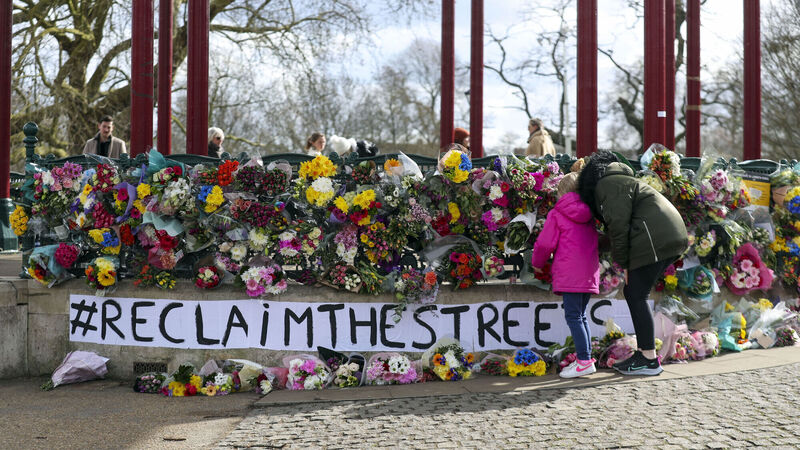'Hidden and unspoken, but threat constantly there': Sarah Everard’s death continues to strike a chord with women

People leave floral tributes at the band stand in Clapham Common, London, after the Reclaim These Streets vigil for Sarah Everard was officially cancelled. Photo: Steve Parsons/PA Wire
Women all over the world have been deeply impacted by the death of Sarah Everard - a woman murdered while going about her everyday life.










